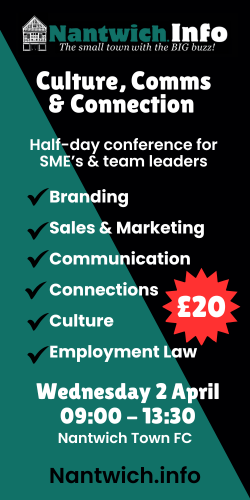
As companies around the world grapple with an increasingly crowded marketplace, corporate branding has taken centre stage.
It’s no longer merely about products or services. Instead, the focus has shifted towards curating an image, a personality – a brand that resonates with consumers on a deeply personal level.
In this endeavor, one often overlooked aspect is event management, a critical player that has a transformative effect on corporate branding strategies.
Event management may seem to some as a mere logistical affair.
However, in reality, it is an art form, a performance that breathes life into a corporation’s identity.
And just like any fine art, it requires a deft hand to orchestrate a perfect symphony that complements and enhances the brand’s personality.
Successful event management companies not only introduces a brand to the audience but also builds an emotional connection that transcends beyond the realm of typical advertising.
It can significantly affect how customers perceive the brand and interact with it in the future.
What does this relationship look like in action? Here’s a closer look.
Translating Brands Into Experiences
At its core, event management is about creating memorable experiences. Whether it’s a product launch, a corporate social responsibility (CSR) initiative, or an industry conference, the event becomes a tangible representation of the brand’s values, mission, and personality.
Companies such as Apple and Google have mastered this craft, transforming what could be mundane product launches into global spectacles, which are as eagerly anticipated as the products themselves.
These events not only introduce new technology but also encapsulate the brands’ ethos, providing audiences with a multi-dimensional brand experience that reverberates around the world.
Humanising the Corporate Image
Corporate events often serve as platforms to humanise the brand, enabling a two-way dialogue between the corporation and its audience.
A well-managed event can facilitate interactions that evoke emotional responses, bolstering the brand’s credibility and fostering loyalty.
For example, charity galas or CSR events present corporations with an opportunity to demonstrate their social responsibility, shedding their ‘corporate’ image to show their commitment to making a difference.
Such efforts not only humanise the brand but also solidify its position as a socially conscious entity within the public sphere.
Facilitating B2B Networking
Events are not merely consumer-facing. Trade shows, expos, and industry conferences play a crucial role in establishing a brand’s reputation within its professional network.
These events can showcase a brand’s thought leadership, innovation, and industry standing, which often translates into a more robust brand image in the eyes of both consumers and industry counterparts.
Managing Perception and Reputation
Event management, when executed correctly, can significantly influence public perception and manage reputation.
Well-planned events that resonate with a brand’s ethos can amplify positive impressions and mitigate potential reputational damage.
On the contrary, poorly managed events can lead to negative publicity, thereby tarnishing a brand’s image.
For instance, the Fyre Festival’s catastrophic failure serves as a cautionary tale.
The poorly managed event led to a media disaster, resulting in irreversible damage to the brand’s reputation.
Leveraging the Power of Social Media
In the digital age, events extend beyond physical boundaries.
They echo through the realms of social media, amplifying the brand’s reach.
Live-tweeted conferences, Instagram-worthy event setups, and viral event moments not only increase brand visibility but also engage a wider audience, providing them with an immersive brand experience without geographical constraints.
In conclusion, event management is an indispensable asset in the corporate branding playbook.
It breathes life into a brand, translating its ethos into tangible experiences, facilitating interactions, and ultimately shaping the public’s perception.
While the challenge is daunting, the potential rewards make it a worthwhile pursuit.



















Recent Comments